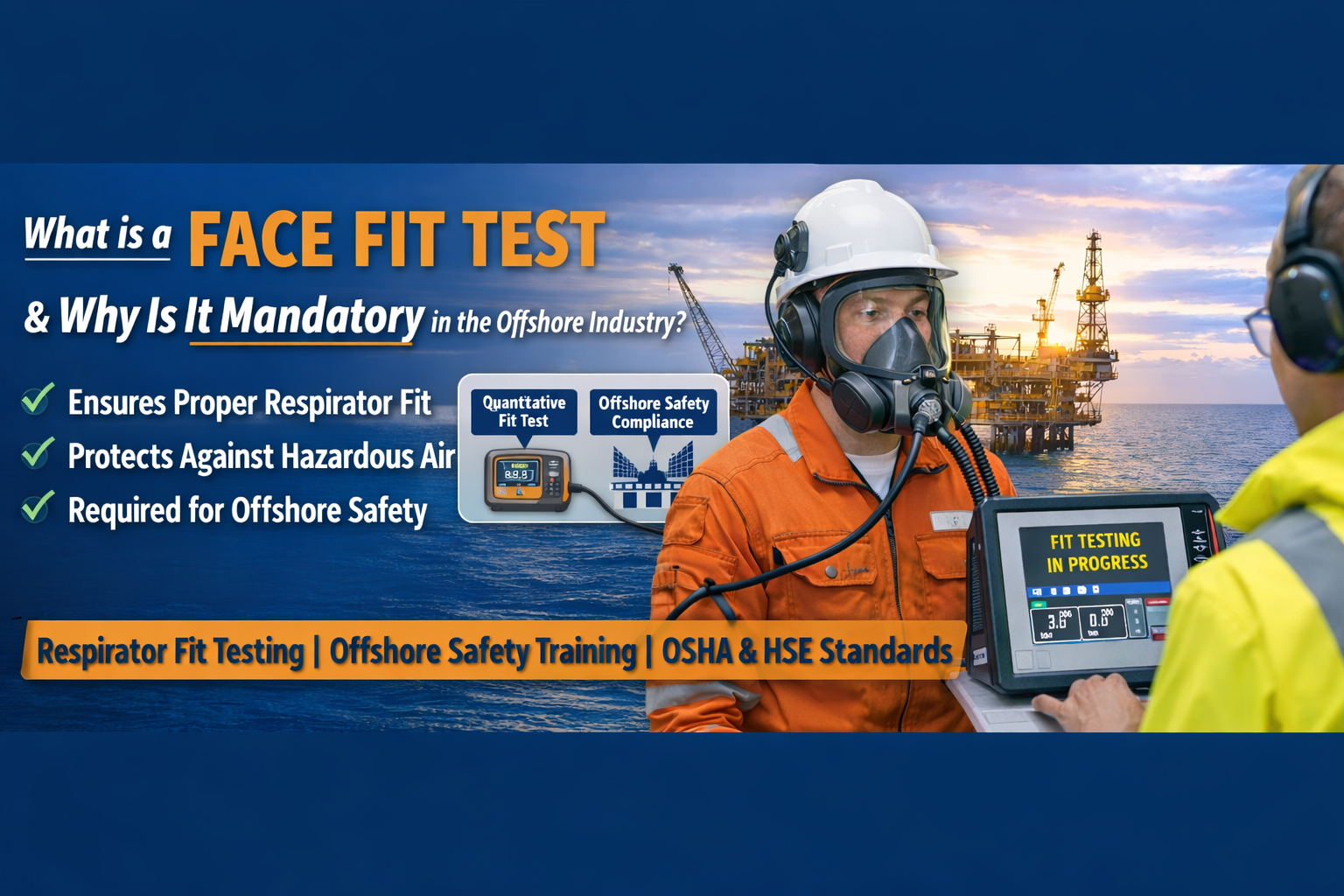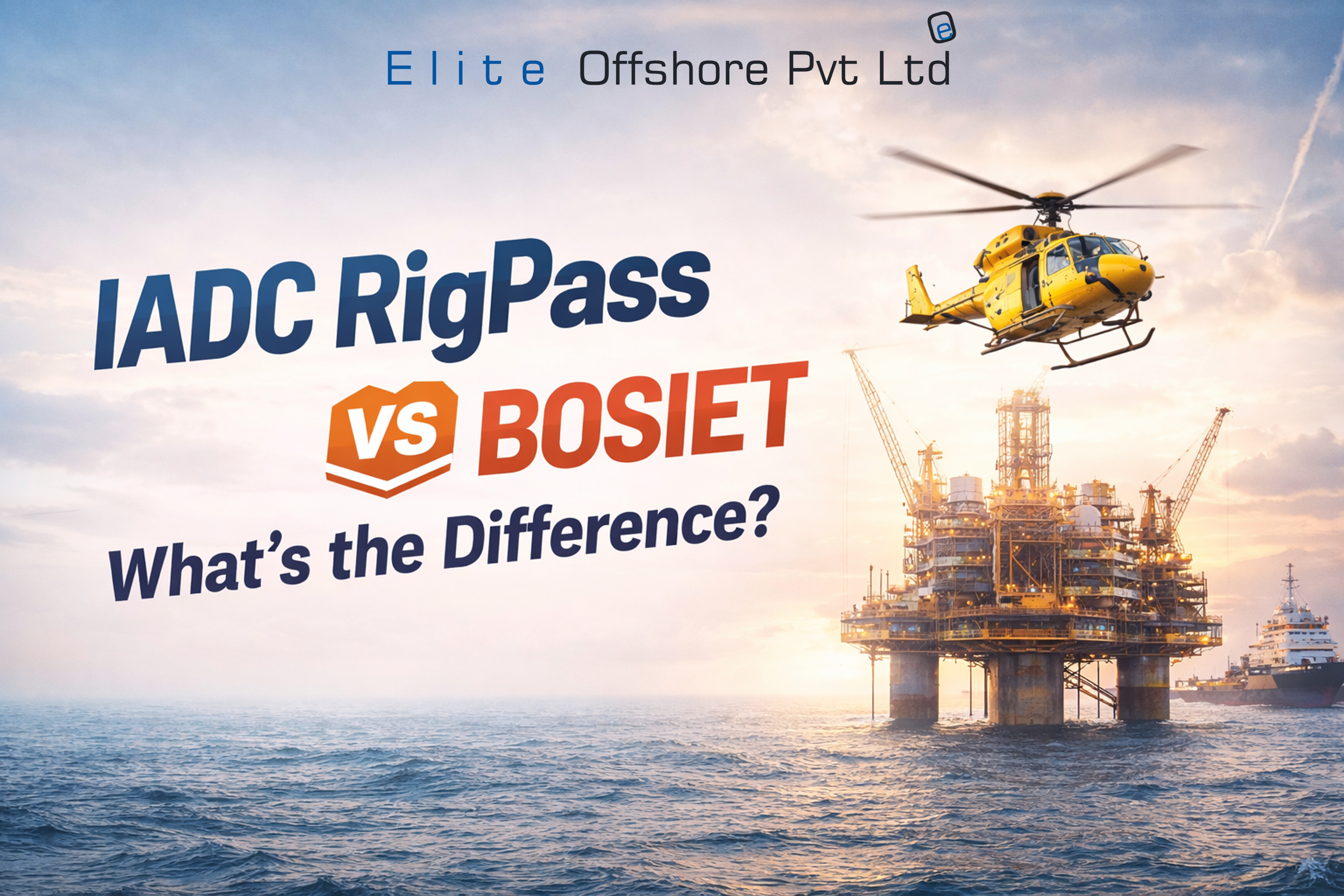Published - Wed, 12 Jun 2024

Crane Operator: A rewarding and fulfilling career
A career as a crane operator can be quite lucrative and rewarding. However, this being a skill, depends on individual interest. Here are some factors to consider:
1. Crane operators are often in demand, especially in offshore, construction, shipping, and manufacturing industries. As infrastructure projects increase and construction continues to expand globally, the need for skilled crane operators remains steady.
2. Crane operators can earn a good income. Salaries vary based on factors such as location, experience, and type of crane operated, but generally, they can earn above-average wages.
3. Operating a crane requires specialized skills and training. As you gain experience and expertise, you may have opportunities to operate more advanced equipment or move into supervisory roles. The training for offshore Offshore Crane Operators are in 3 stages. It takes time to become an Offshore Crane Operator Stage 3 operator. Elite Offshore Pvt Ltd, based in Navi Mumbai, provides training and certification of crane operators for Mobile RT Crane, Offshore Crane, EOT Crane, Hydra & Farana etc. They also provide training and certification for Crane Inspectors. You may get in touch with them for more details..
4. As long as construction and related industries exist, crane operators will be needed. This provides a certain level of job stability, although economic fluctuations can affect demand to some extent.
5. Crane operators often work outdoors and in various weather conditions. They may also work at heights, which can be challenging for some individuals but exciting for others. The offshore crane operators work on offshore rigs. There are floating cranes with capacity in thousands of tonnes.
6. Operating heavy machinery like cranes comes with inherent risks. Safety protocols must be followed diligently to prevent accidents and injuries.
Thus a career as a crane operator can be fulfilling for those who enjoy working with heavy machinery, have a good sense of spatial awareness, and are committed to safety. It offers a combination of job stability, good pay, and opportunities for advancement for those willing to invest in training and gaining experience.
Created by
Elite Offshore
Elite Offshore Pvt Ltd, established 2015, headquartered in CBD Belapur, Navi Mumbai, is a renowned training institution specializing in safety and skill courses for the offshore and industrial sectors. With a commitment to excellence, Elite Offshore offers a wide range of courses designed to meet the specific needs of professionals working in challenging environments. These courses include BOSIET, HUET, HLO, HDA, OERTM, OERTL, and more, ensuring that individuals are equipped with the necessary knowledge and skills to excel in their roles. As a trusted name in the industry, Elite Offshore is known for its state-of-the-art facilities, experienced trainers, and adherence to international safety standards. Through their training programs, they aim to enhance safety, efficiency, and proficiency in offshore and industrial operations, contributing to the success and well-being of professionals and organizations alike. Learn more about Elite Offshore Pvt Ltd and their comprehensive training solutions at https://eliteoffshore.in. Elite Offshore Pvt Ltd was founded with a clear goal - to enhance safety standards and promote unmatched skills development in the offshore industry. Established in 2015, the institute quickly gained a reputation as a reliable partner for individuals and organizations seeking exceptional training programs. With a commitment to delivering top-quality training solutions, Elite Offshore has become a recognized name in providing complete safety and skill development programs for the industrial and offshore oil and gas sector. It's not just a training center but a hub of knowledge, safety, and professional growth.
Elite Offshore Pvt Ltd: Leading the Way in Safety and Skill Training
Founded with a vision to revolutionize safety and skill training in the offshore and industrial sectors, Elite Offshore Pvt Ltd stands tall as a beacon of excellence in CBD Belapur, Navi Mumbai. Established in 2015, Elite Offshore has rapidly emerged as a trusted name, delivering top-notch courses and certifications to professionals across various industries.
Inception and Growth:
Elite Offshore Pvt Ltd was born in 2015 from a passion for ensuring the utmost safety and efficiency in offshore and industrial operations. The founders envisioned a training institution that would not only impart essential skills but also instill a culture of safety consciousness among professionals.
In the early days, Elite Offshore started its journey with a modest team of highly skilled trainers and a commitment to providing cutting-edge training facilities. The institution quickly gained recognition for its hands-on approach, practical training modules, and adherence to international safety standards.
Courses Offered:
One of the key pillars of Elite Offshore's success is its diverse range of courses catering to the specific needs of the offshore and industrial sectors. The institution offers a comprehensive suite of training programs, including:
1. Basic Offshore Safety Induction and Emergency Training (BOSIET): Equipping professionals with essential survival skills and emergency response training for offshore environments.
2. Helicopter Underwater Escape Training (HUET): Providing the knowledge and techniques needed to escape safely from a submerged helicopter.
3. Helideck Assistant (HLO): Training individuals in the safe and efficient management of helideck operations.
4. Hazardous Area Classification (HDA): Understanding the classification and management of hazardous areas in industrial settings.
5. Offshore Emergency Response Team Member (OERTM): Developing the skills required to be part of an emergency response team in offshore installations.
6. Offshore Emergency Response Team Leader (OERTL): Training individuals to lead and coordinate emergency response efforts in offshore environments.
7. Liberia approved OIM, Barge Supervisor, Ballast Control Operator, Maintenance Supervisor.
and many more. Visit https://eliteoffshore.in for more details.
Excellence in Training:
What sets Elite Offshore apart is its unwavering commitment to excellence in training. The institution boasts state-of-the-art training facilities equipped with the latest technology and simulators. This allows participants to experience real-life scenarios in a controlled environment, enhancing their learning and preparedness.
Moreover, Elite Offshore's team of seasoned trainers brings a wealth of industry experience and expertise to the classroom. Their practical insights and hands-on approach ensure that participants not only grasp theoretical concepts but also develop the necessary skills to excel in their roles.
Industry Recognition and Achievements:
Over the years, Elite Offshore Pvt Ltd has garnered numerous accolades and certifications for its exceptional training standards. The institution is proud to be accredited by prestigious bodies such as IADC, Liberia Govt etc, ensuring that its courses meet the highest industry standards.
Elite Offshore has also forged strong partnerships with leading companies in the offshore and industrial sectors. These collaborations have enabled the institution to stay abreast of industry trends, emerging technologies, and evolving safety regulations.
Future Ambitions:
Looking ahead, Elite Offshore Pvt Ltd has ambitious plans to further expand its footprint in the realm of safety and skill training. The institution aims to:
1. Enhance Course Offerings: Continuously innovate and introduce new courses that address the evolving needs of the offshore and industrial sectors.
2. Global Expansion: Explore opportunities to establish training centers in key offshore hubs worldwide, catering to an international clientele.
3. Research and Development: Invest in research and development initiatives to develop advanced training methodologies and simulators.
4. Corporate Social Responsibility: Engage in meaningful CSR initiatives aimed at promoting safety awareness and skill development in local communities.
5. Industry Partnerships: Strengthen collaborations with industry leaders, academic institutions, and regulatory bodies to drive excellence in safety and skill training.
Conclusion:
In a world where safety and efficiency are paramount in offshore and industrial operations, Elite Offshore Pvt Ltd stands as a beacon of excellence. With its unwavering commitment to providing top-tier training, cutting-edge facilities, and a team of industry-leading trainers, the institution continues to shape the future of safety and skill development.
As Elite Offshore embarks on its journey towards greater heights, its mission remains clear: to empower professionals with the knowledge, skills, and confidence to navigate the challenges of the offshore and industrial sectors safely and effectively.
For more information about Elite Offshore Pvt Ltd and its range of courses, visit https://eliteoffshore.in or write to info@eliteoffshore.in or training@eliteoffshore.in.
Comments (0)
Search
Popular categories
OSHA & Industrial Safety Courses
12Liberia Approved Rig Courses
4Marine and Offshore
3IADC Approved - E learning
2Offshore Oil and Gas Rig Courses
2Port & Marine Courses
1Latest blogs

What is a Face Fit Test & Why Is It Mandatory in Offshore Industry?
Thu, 12 Feb 2026

BOSIET & CA-EBS Safety Training Navi Mumbai | Elite Offshore Pvt Ltd
Tue, 10 Feb 2026

IADC RigPass vs BOSIET – what’s the difference?
Wed, 04 Feb 2026

Write a public review